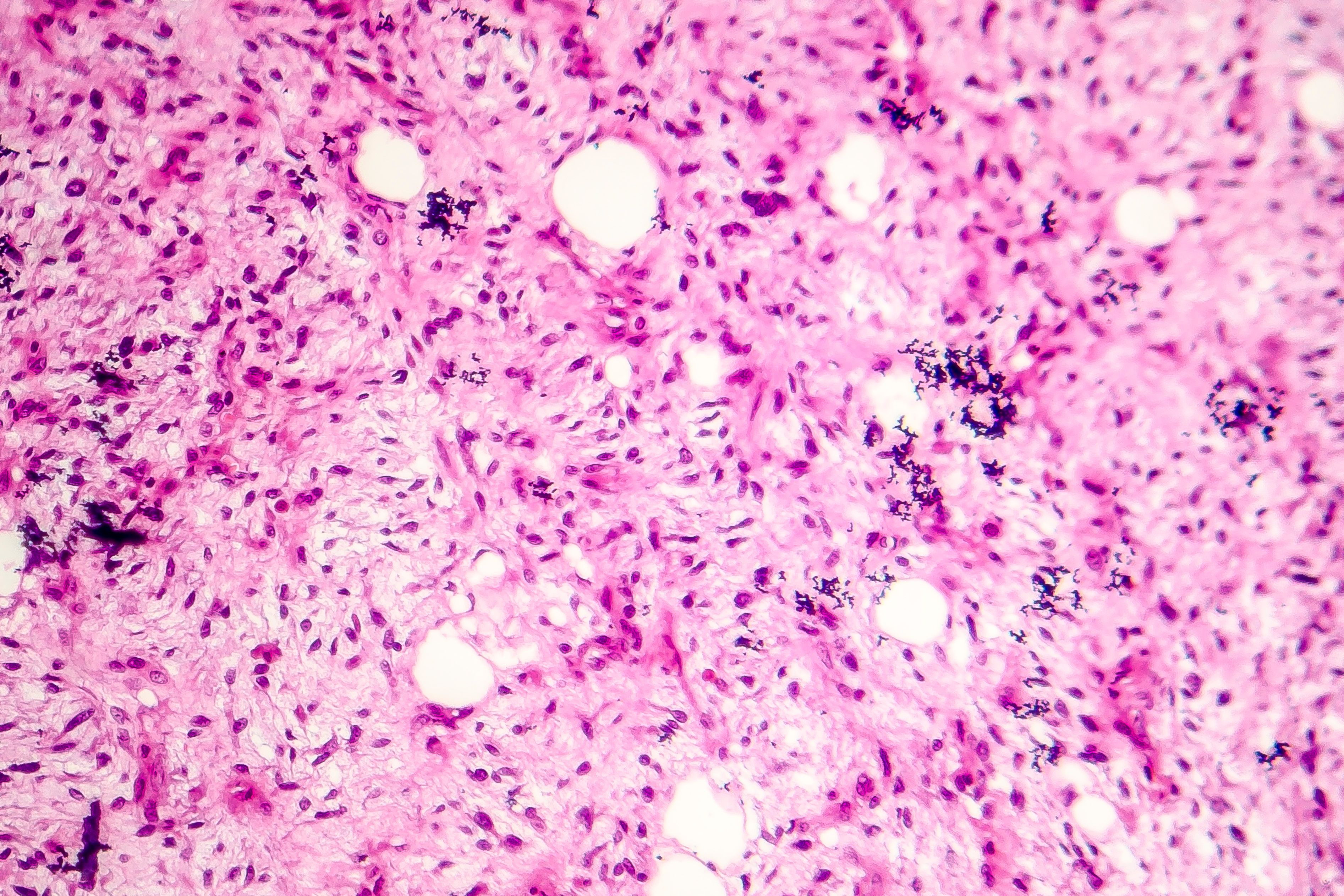Milademetan and Trabectedin Show Similar Outcomes in Dedifferentiated Liposarcoma
No progression-free survival advantage was shown with milademetan compared with trabectedin in the phase 3 MANTRA study.
Image Credit: © Dr_Microbe - www.stock.adobe.com

Treatment with milademetan (RAIN-32) did not demonstrate an improvement in progression-free survival (PFS) vs trabectedin (Yondelis) in patients with dedifferentiated liposarcoma (DD LPS), missing the primary end point of the pivotal phase 3 MANTRA study (NCT04979442).1
The median PFS shown with milademetan in the study was 3.6 months compared with 2.2 months among patients treated with trabectedin (HR, 0.89; 95% CI, 0.61-1.29; P = .53), according to topline results from the study which were announced in a press release by Rain Oncology, Inc. The PFS results were based on 115 events in the 175-patient study.
“We are very disappointed in the outcome of the MANTRA trial, as the results did not closely mirror prior clinical results in patients with DD LPS,” said Avanish Vellanki, co-founder and chief executive officer, Rain Oncology, Inc, in a press release. “We are truly saddened we will not likely be able to offer patients new treatment options for this challenging disease. However, the quality and robustness of the global MANTRA trial reflects an unambiguous data set.”
Safety results were also announced and showed a 44.2% dose reduction rate in the milademetan arm vs 29.1% in the trabectedin arm. Treatment discontinuation occurred in 11.6% of patients in the milademetan arm compared with 19.0% in the trabectedin arm. Treatment-emergent serious adverse events in the milademetan arm occurred in 36.0% compared with 48.1% in the trabectedin arm.
The most common treatment-emergent adverse events (TEAEs) in the milademetan arm were nausea, thrombocytopenia, anemia, vomiting and neutropenia. The most common grade 3/4 TEAEs that occurred with milademetan treatment were thrombocytopenia (39.5%), neutropenia (25.5%), and anemia (18.6%).
Full results from the study will be presented at an upcoming medical meeting.
MANTRA is a randomized, multicenter study that randomizes patients 1:1 to receive milademetan or trabectedin. In the experimental arm, patients are administered oral milademetan 250 mg once daily on days 1 to 3 and days 15 to 17 of each 28-day cycle.2 In the control arm, patients receive intravenous trabectedin 1.5 mg/m2 body surface area as a 24-hour infusion, every 3 weeks.2
The secondary end points of the study include overall survival, disease control rate, objective response rate, duration of response, PFS by investigator, and the number of patients with TEAEs. Results from these end points have yet to be reported.
“Based on the MANTRA topline results, we will also re-evaluate the path forward for milademetan. We continue to believe that reactivating p53 is an important avenue to pursue as part of a treatment strategy across cancer. I would like to extend our sincerest gratitude to the patients and clinicians who participated in the trial as well as our dedicated team,” added Vellanki in the press release.1
REFERENCES:
1. Rain Oncology announces topline results from phase 3 MANTRA trial of milademetan for the treatment of dedifferentiated liposarcoma. New release. Rain Oncology Inc. May 23, 2023. Accessed May 23, 2023. https://bit.ly/43knBzE
2. Treatment of milademetan versus trabectedin in patient with dedifferentiated liposarcoma (MANTRA). ClinicalTrials.gov. Updated March 30, 2023. Accessed May 23, 2023. https://www.clinicaltrials.gov/ct2/show/NCT04979442
Need for Systemic Therapy Remains in Sarcoma
November 27th 2023In an interview with Targeted Oncology, Lisa B. Ercolano, MD, discussed the evolving treatment landscape for sarcomas and underscored the pivotal role of molecular profiling, while addressing the need for more efficacious systemic therapies.
Read More